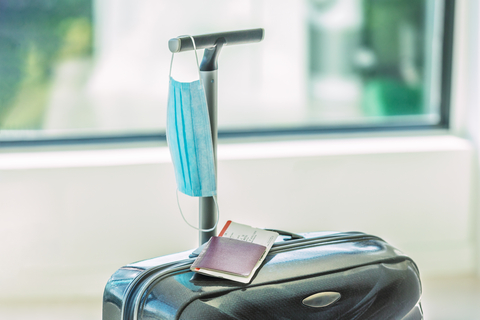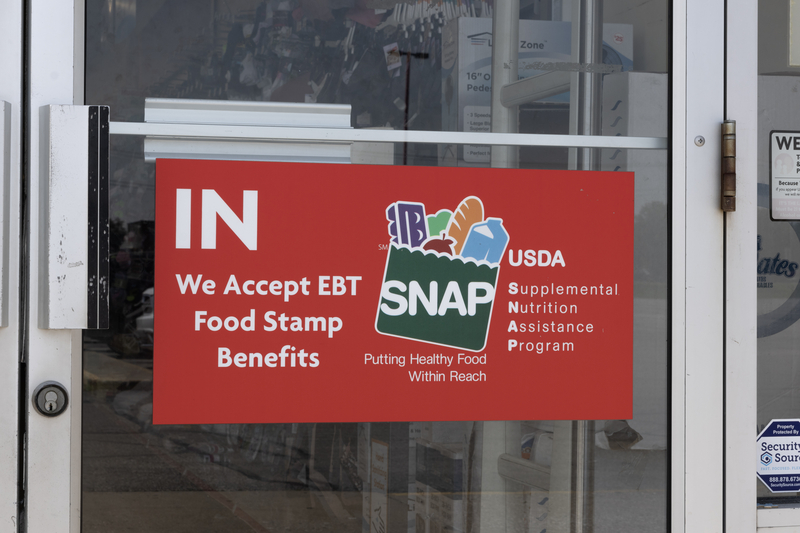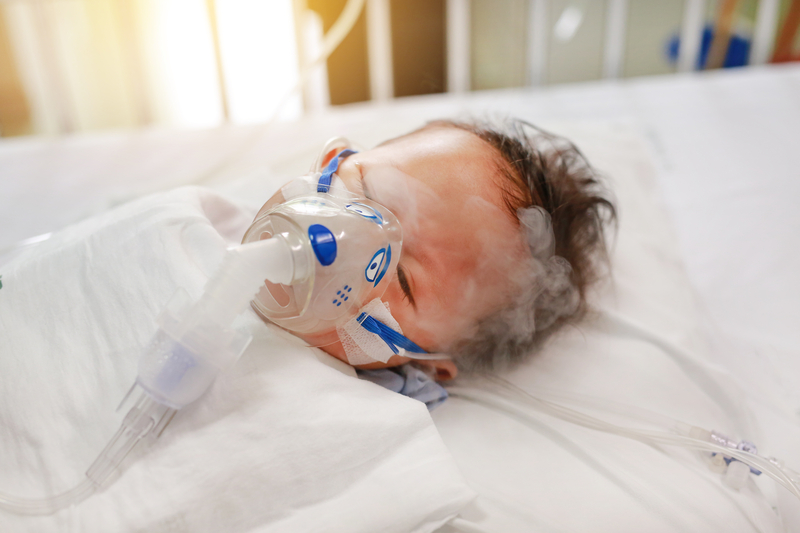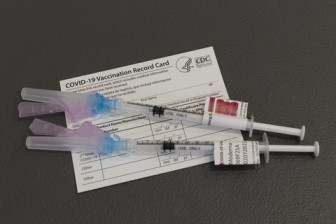
Abortion travel restrictions have significantly impacted access to reproductive health care in 2024. Many people faced challenges due to abortion travel restrictions that forced them to cross state lines to receive the care they need. These abortion travel restrictions continue to shape the landscape of abortion access and increase reliance on telehealth services. For 2½ hours in February 2024, Gracie Ladd and her husband sat in heavy silence as they drove from their home in southern Wisconsin to Chicago. Their spirits were as cold and gray as the Midwestern winter passing by the car windows; Ladd was 20 weeks pregnant and had recently learned that a severe fetal condition made the developing baby “incompatible with life.” Staying pregnant could put her own health at risk, too.
But abortion wasn’t an option in Wisconsin, where a 175-year-old state law had effectively banned the procedure at the time. That law has since been overturned, but Ladd, her family and her doctors were stuck in a legal gray area that raised fear and worry. And instead of being surrounded by familiar comforts at one of the most distressing points of her life, Ladd had to take time off from work, coordinate child care for her 2-year-old son and travel more than 100 miles from home to a health care provider she had never met.
“In the moment when it was all happening … I was more focused on just getting through the grief of that time. But as the months went on and I was sitting with what happened able to process it, I just got really mad,” Ladd said. “How asinine is it that my health care providers can say, ‘Yes, this is what you need, this is the best option for you, but we can’t do it. You have to go here because our hospital is uncomfortable due to legal reasons to provide this procedure’?”
Instead, Ladd spent an hours-long ride home lying uncomfortably the back seat of the car, nauseated and in pain – a trip that tens of thousands of others also made last year, often for even an even longer time, and sometimes alone.
More than 1 in 7 people who had an abortion in the United States last year crossed state lines to do so, according to new estimates from the Guttmacher Institute, a research and policy organization focused on sexual and reproductive health that supports abortion rights. The patterns highlight the lasting impact of the US Supreme Court’s Dobbs decision, which revoked the federal right to an abortion and created a fractured landscape of care – with ongoing policy changes that continue to affect tens of thousands.
About 155,000 people traveled out of state for an abortion in 2024, according to the new Guttmacher estimates — more than twice as many as in 2019.
Nearly half of those who traveled for an abortion last year came from a dozen states that have enacted total bans, the Guttmacher data shows, including more than 28,000 Texas residents who left the state for an abortion last year – more than any other state.
Most often, those Texas residents traveled to neighboring New Mexico, where abortion is legal. Kansas and Colorado also welcomed thousands of Texas residents for abortions last year.
For some Texas residents, getting to a neighboring state requires a full day of travel. But in some parts of the country – particularly in the Southeast – options for abortion care require people to travel through multiple states.
In the first year and a half after the Dobbs decision, Florida had become a key access point for abortion care. In 2023, more than 9,000 people traveled from other states to get an abortion in Florida, according to Guttmacher data. About 1 in 12 abortions nationwide and 1 in 3 abortions in the South were performed in Florida at that time.
But in May 2024, a six-week ban took effect in Florida – limiting abortions to a point before most women know they’re pregnant. The number of people who traveled to Florida for an abortion last year was cut in half, Guttmacher data shows. And nearly 8,000 people left Florida to get an abortion in another state last year, often crossing through least three states for care.
Despite the restrictions imposed by North Carolina law – a 12-week gestational limit and a 72-hour waiting period – the great gap created by Florida’s new, even tighter restrictions drove a significant increase in travel from Florida to North Carolina for abortion care. Floridians traveled even farther north for abortion care, too: About 10 times more people traveled from Florida to Virginia in 2024 compared with 2023, and more than 2,000 people traveled up to New York last year.
“We keep relearning the same lesson with these data, in some ways, which is that what happens in one state doesn’t stay in one state and really has ripple effects in many others,” said Isaac Maddow-Zimet, a data scientist with Guttmacher. “Especially when it comes to travel patterns, the decisions that people are making about where they can travel are so complicated and so impacted by a network of restrictions that people are having to navigate, particularly in the Southeast.”
Illinois has remained a key access point for people traveling for an abortion nationwide; More than a fifth of the people who traveled for an abortion last year went to Illinois, the new Guttmacher data shows. The state drew more than 35,000 out-of-state residents for an abortion in 2024, more than any other state.
Experts say that stakeholders across Illinois have made their stance on abortion rights clear, with politicians, advocates, providers and more committing to protect access.
“We are not just working on advocacy and not just passing good laws; we are directly investing in abortion funding, which is life-saving, and that has an immediate impact. Up and down the state, we take that very seriously,” said Megan Jeyifo, executive director of the Chicago Abortion Fund.
The investments around abortion care in Illinois – including clinics opening, expanded hours and growing the number of providers – have also meant there are a lot of appointments available, she said.
“When you are pregnant and do not want to be, one more week makes a big difference,” Jeyifo said. “The conditions we’ve created here in Illinois are not only available to people of means, they are available to all.”
Choices Center for Reproductive Health opened a new clinic in southern Illinois in late 2023, and the vast majority of the patients seen there – about 90% – come from other states, President and CEO Jennifer Pepper said.
“I pull into the parking lot and I see license plates from Texas and Louisiana and Tennessee, so I know that these patients have traveled a minimum of four hours,” Pepper said. “If they could just go down the street to their regular ob/gyn, they could be in and out under an hour. It’s a lot of wasted hours for a lot of people that are taking care of children and teaching and being nurses and just caring for our communities. That’s what I think about when I see the patients.”
The clinic’s policy is to see any patient who makes it to its doors.
“We don’t turn people away for abortion care, even if they’re four hours late, because that’s care they need. They’ve gone through a lot, and they’ve traveled a great distance to access it, so we take care of them,” Pepper said. “Cars break down, tires go flat, you get caught in traffic, children have to eat, the babysitter shows up late – these are all things that happen, and it takes a lot of compassion and willing to be flexible.”
The clinic is able to be flexible in large part because its schedule is not overbooked. Pepper says part of that may be thanks to the growing use of telehealth to access medication abortion, including those that are accessed through shield laws by individuals living in states with abortion bans.
Another new report, published Monday by the Society of Family Planning, found that 1 in 4 abortions in 2024 were provided through telehealth – up from 1 in 5 in 2023 and just 1 in 20 in 2022.
At the end of 2024, an average of 12,330 abortions each month were provided under shield laws, up about 40% from the start of the year.
“Millions of people live in states where abortion is banned or restricted, and traveling for care isn’t an option for everyone,” Dr. Angel Foster, co-founder of the Massachusetts Medication Abortion Access Project (The MAP), a shield law practice, said in a statement. “By providing safe, affordable medication abortion via telemedicine, we make sure people can get the care they need – no matter where they live or what they can afford.”
Overall, data from Guttmacher shows that the number of people traveling for an abortion has dipped slightly: About 9% fewer people crossed state lines for an abortion last year than in 2023, a difference of about 15,000 people.
While access to telehealth abortions has increased, there is also less funding available for people who want to or need to travel.
Choices was once able to cover 100% of the abortion costs for patients in need, but that has now dropped to 50% or less, Pepper said. And in mid-2024, the Chicago Abortion Fund also had to stop providing support to people who were traveling to states other than Illinois, Jeyifo said, jeopardizing the state’s ability to absorb the increase in need for appointments.
The rise in abortion travel restrictions has led to more out-of-state travel for abortion care. Abortion travel restrictions not only affect patients’ ability to access timely care but also place emotional and financial burdens on individuals and families. Telehealth services have emerged as an important option amid abortion travel restrictions, helping some people avoid lengthy and difficult trips. Understanding abortion travel restrictions is essential to addressing gaps in care and improving reproductive health access nationwide.
“Telehealth has become a vital tool in expanding abortion care—especially for people in states with bans,” Dr. Ushma Upadhyay, co-chair of the #WeCount project from the Society of Family Planning and professor at the University of California, San Francisco’s Advancing New Standards in Reproductive Health, said in a statement. “But this access is far from guaranteed. Anti-abortion extremists are using junk science and now turning their attacks toward telehealth, trying to dismantle a lifeline for people in ban states by attempting to roll back access.”
Trending Topics
Features
- Drive Toolkit
Download and distribute powerful vaccination QI resources for your community.
- Health Champions
Sign up now to support health equity and sustainable health outcomes in your community.
- Cancer Early Detection
MCED tests use a simple blood draw to screen for many kinds of cancer at once.
- PR
FYHN is a bridge connecting health information providers to BIPOC communities in a trusted environment.
- Medicare
Discover an honest look at our Medicare system.
- Alliance for Representative Clinical Trials
ARC was launched to create a network of community clinicians to diversify and bring clinical trials to communities of color and other communities that have been underrepresented.
- Reducing Patient Risk
The single most important purpose of our healthcare system is to reduce patient risk for an acute event.
- Victor Mejia
- Subash Kafle
- Jessica Wilson

















